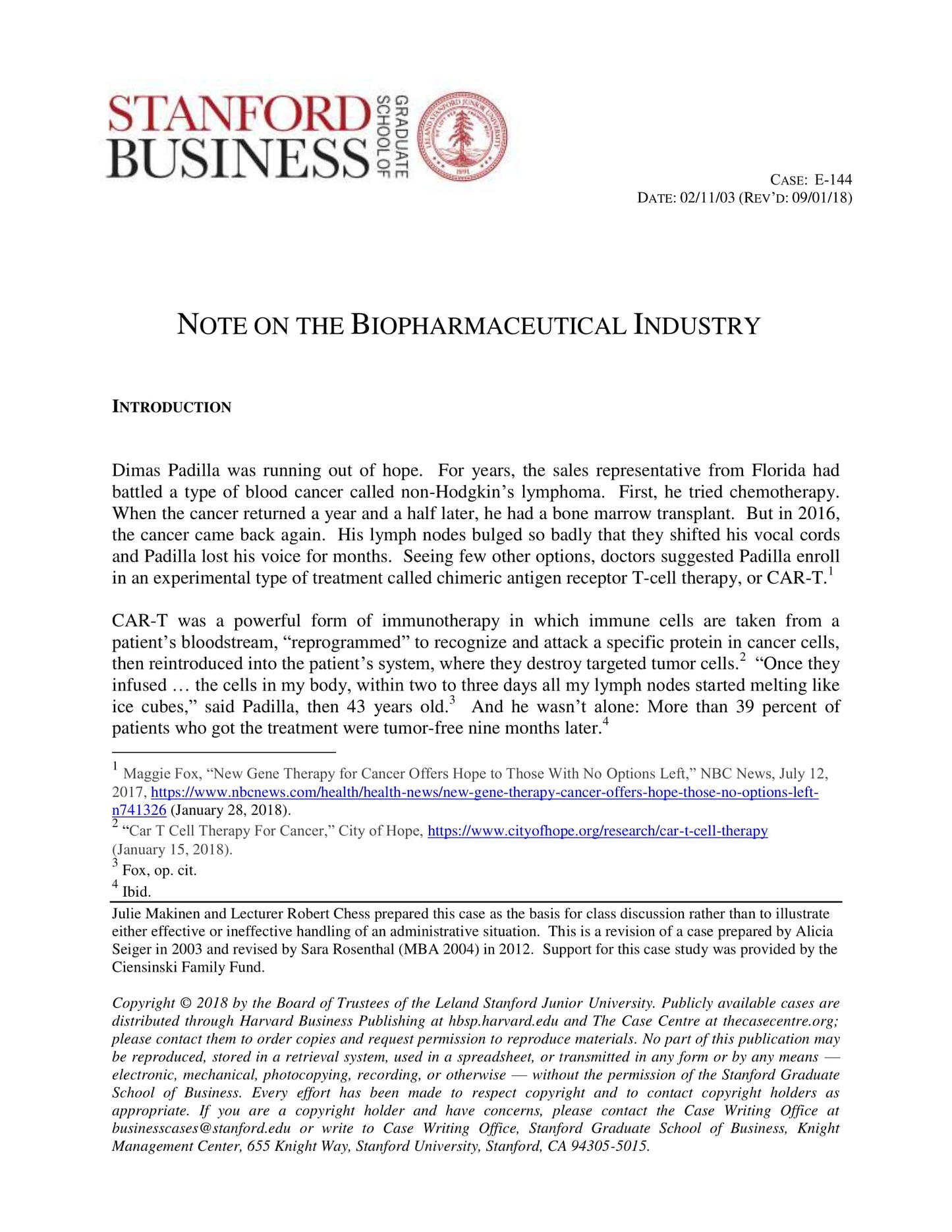Note on the Biopharmaceutical Industry
受取状況を読み込めませんでした
Since the 1990s, the distinction between the pharmaceutical industry and the biotech industry has blurred, creating what we can now call the biopharmaceutical industry. How and why did this happen, and where is the industry going now? Traditionally, pharmaceutical companies worked with plant- and chemical-based compounds, manufacturing drugs through chemical synthesis. Biotech companies, in contrast, sprung up starting in the 1970s and 1980s, when scientists began working on developing therapies manufactured in or extracted from living organisms such as bacteria, yeast, and mammalian and plant cells. These therapies, known as biologics, have been described as one of the "most sophisticated and elegant achievements of modern science," offering powerful therapeutic options for many diseases where previously no treatments, or only treatments of limited efficacy, were available. Biologics have included innovative therapies in rheumatology, cardiology, dermatology, gastroenterology, oncology, endocrinology, and other medical fields. In 2016, seven of the top ten best-selling drugs in the world were biologics. This note describes the biopharmaceutical industry, encompassing both older, larger "pharma" companies such as Pfizer, Merck, Roche or GSK, and younger biotech companies. It looks at the difference between traditional pharmaceuticals and biologics, the drug approval process, R&D, intellectual property issues, financial issues including fundraising, regulatory issues, and ethical issues.
【書誌情報】
ページ数:35ページ
サイズ:A4
商品番号:HBSP-E144
発行日:2003/2/11
登録日:2018/12/27


